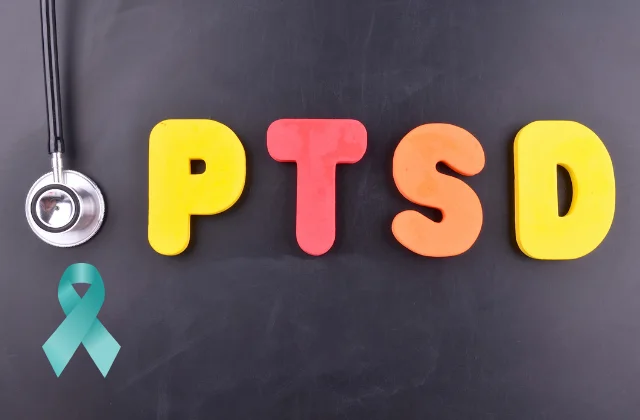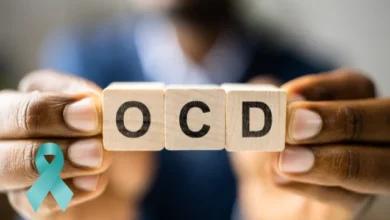Understanding PTSD: Causes, Symptoms, and Effective Treatments
A Comprehensive Guide to Recognizing and Managing Post-Traumatic Stress Disorder
Many people suffer from various mental health issues due to different reasons. Stress is a common outcome of these issues, which can eventually lead to severe mental disorders. One such disorder is Post-Traumatic Stress Disorder (PTSD). Today, we will delve into the details of PTSD, its causes, symptoms, misconceptions, and treatment options.
Understanding PTSD
PTSD is a serious mental health condition that can develop after a person experiences or witnesses a traumatic event. This disorder is characterized by persistent and intrusive memories of the event, leading to significant distress and functional impairment.
Causes of PTSD
PTSD can be triggered by a variety of traumatic events, including:
- Accidents: Such as car crashes, natural disasters, or other sudden, life-threatening events.
- Childhood Abuse: Physical, emotional, or sexual abuse experienced during childhood.
- Sexual Assault: Any form of sexual violence or abuse.
- Physical Assault: Violent attacks or physical harm.
- War Exposure: Witnessing the horrors of war or combat situations.
- Loss of a Loved One: The sudden or unexpected death of a close family member or friend.
Other factors can also contribute to the development of PTSD. It is not limited to direct victims; even witnesses can be affected.
Symptoms of PTSD
Nightmares
Individuals with PTSD often experience recurrent nightmares about the traumatic event. These dreams can be vivid and disturbing, leading to disrupted sleep patterns.
Flashbacks
Flashbacks are intrusive memories of the traumatic event that can feel as real as the original experience. These episodes can be triggered by reminders of the event, such as specific sounds, smells, or situations.
Difficulty Concentrating
PTSD can make it difficult for individuals to focus on daily tasks. The constant intrusion of traumatic memories can impair cognitive functions, making it hard to concentrate.
Irritability
People with PTSD often experience mood swings and increased irritability. They may avoid social interactions and prefer to isolate themselves.
Panic Attacks
Panic attacks are sudden episodes of intense fear and anxiety. Individuals with PTSD may experience these attacks frequently, often triggered by reminders of the traumatic event.
Additional Symptoms
- Emotional Distress: Intense emotional reactions to reminders of the event.
- Avoidance: Avoiding places, activities, or people that remind the individual of the event.
- Memory Issues: Difficulty remembering important aspects of the event.
- Depression: Feelings of hopelessness and despair.
- Isolation: Avoiding social interactions and feeling detached from others.
- Self-Blame: Constantly blaming oneself for the event.
- Aggressive Behavior: Exhibiting aggressive or irritable behavior.
- Mistrust: Distrusting others and feeling constantly on guard.
- Hypervigilance: Being overly alert and watchful.
- Suicidal Thoughts: Thoughts of self-harm or suicide.
Misconceptions About PTSD
Myth 1: PTSD Only Affects Those Who Have Lost a Loved One
Fact: While the loss of a loved one can trigger PTSD, it is not the only cause. Any traumatic event that causes significant emotional distress can lead to PTSD.
Myth 2: PTSD is a Rare and Severe Condition
Fact: PTSD is more common than many people realize. With proper treatment, many individuals can recover and lead normal lives.
Myth 3: Only Weak Individuals Develop PTSD
Fact: PTSD can affect anyone, regardless of their mental strength. It is not a sign of weakness but a natural response to extreme trauma.
Signs of PTSD
The symptoms of PTSD can manifest within a month of the traumatic event, but it may take much longer for some individuals to recognize the signs. Common symptoms include:
- Emotional Distress: Intense emotional reactions to reminders of the event.
- Nightmares: Recurrent nightmares about the event, leading to sleep disturbances.
- Avoidance: Avoiding places, activities, or people that remind the individual of the event.
- Memory Issues: Difficulty remembering important aspects of the event.
- Depression: Feelings of hopelessness and despair.
- Isolation: Avoiding social interactions and feeling detached from others.
- Self-Blame: Constantly blaming oneself for the event.
- Aggressive Behavior: Exhibiting aggressive or irritable behavior.
- Mistrust: Distrusting others and feeling constantly on guard.
- Suicidal Thoughts: Thoughts of self-harm or suicide.
Treatment Options for PTSD
The primary goal of PTSD treatment is to manage the physical and mental symptoms so that the individual can return to a normal life. While there is no definitive cure, PTSD can be managed through counseling and medication.
Counseling and Therapy
Counseling plays a crucial role in helping individuals cope with PTSD. Techniques such as Cognitive Behavioral Therapy (CBT) and Eye Movement Desensitization and Reprocessing (EMDR) are commonly used.
Medication
Medications such as antidepressants and anti-anxiety drugs can help manage the symptoms of PTSD. It is essential to consult a healthcare provider to determine the best course of treatment.
Conclusion
Mental health issues can affect anyone, and it is crucial to recognize the signs early. If you or someone you know is exhibiting symptoms of PTSD, seek professional help immediately. With proper treatment, recovery is possible.
Stay healthy and take care of your mental well-being. Thank you for reading.
FAQs
What are the common symptoms of PTSD?
Common symptoms of PTSD include nightmares, flashbacks, difficulty concentrating, irritability, and panic attacks.
Can PTSD be cured?
While there is no definitive cure for PTSD, it can be managed effectively through counseling and medication.
Who is at risk of developing PTSD?
Anyone who has experienced or witnessed a traumatic event is at risk of developing PTSD.
How is PTSD treated?
PTSD is typically treated through a combination of counseling, therapy, and medication. Techniques such as CBT and EMDR are commonly used.
Is PTSD a sign of weakness?
No, PTSD is not a sign of weakness. It is a natural response to extreme trauma and can affect anyone, regardless of their mental strength.









